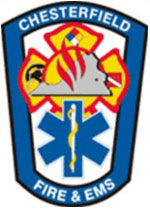By: Robert Avsec
I began my journey through the Executive Fire Officer Program (EFOP) in September 1997 and received my EFOP Certificate in January 2001. I’ve also be fortunate to have earned a B.S. in Fire and Safety Engineering Technology from the University of Cincinnati and a M.S. in Executive Fire Service Leadership from Grand Canyon University in Phoenix, AZ. Which of those three framed documents on my home office wall do I feel had the most impact on my professional development as a fire officer? EFOP, hands down.
Why EFOP? Don’t get me wrong, my course work in both of my degree programs provided me with the opportunity to acquire a vast amount of knowledge in a wide variety of subjects pertinent to Fire and EMS (I think it’s pertinent to note that I earned both of those degrees through distance learning programs from my home in Chesterfield County, VA). It was during my four-year pursuit of that EFOP certification, however, that I acquired the skills and abilities that had a phenomenal impact on my growth as a fire officer. Over those four years of EFOP, during each of the two-week long classes, my cohorts and I learned:
- The relevance of leadership development, prevention, and risk-reduction if we were to be part of transforming our fire and emergency services organizations from being reactive to proactive;
- The value of research and its application to our profession;
- How to come together as a group of “unknowns” on Monday morning of Week #1 and within a few days form productive work teams that tackled real-life problems and issues that currently faced the Fire and EMS world;
- How to draw upon the individual talents within a work team and complete assigned projects and then share the results of that work with our cohorts through media-supported oral presentations; and
- How to take these experiences back home and have a positive influence on our own department.
For me, the experience of completing my four required Applied Research Projects (ARP) was worth “twice the price of admission.” (EFOP participants must complete an Applied Research Project (ARP) that relates to their organization within 6 months after the completion of each of the four courses. A certificate of completion for the entire EFOP is awarded only after the successful completion of the final research project). I was extremely fortunate that my department, Chesterfield County (VA) Fire and EMS Department (CFEMS), not only supported my attendance and the attendance of other fire officer for EFOP, but also embraced the concept of the ARP for organizational improvement.
Here’s what happened with each of my four ARPs that I completed while a member of CFEMS:
- Analysis of the change readiness of Chesterfield Fire Department officers. The contents and recommendations from this ARP, along with the last one on Succession Planning, had a positive influence on the Officer Development Program at the time and on future programs for officer development.
- Succession planning in Chesterfield Fire and Emergency Medical Services. Along with the aforementioned ARP on Change Readiness, we implemented several of the significant recommendations of the ARP that included: a multi-day Chief Officers School and an 8-week officer preparatory course, Applied Leadership for Company Officers, for those firefighters who earned a spot on the Lieutenant Promotional Eligibility List each year.
See why I put earning my EFOP certificate at the top of my list? What do you think?
See Related
 Fire & EMS Leader Pro The job of old firefighters is to teach young firefighters how to become old firefighters!
Fire & EMS Leader Pro The job of old firefighters is to teach young firefighters how to become old firefighters!


